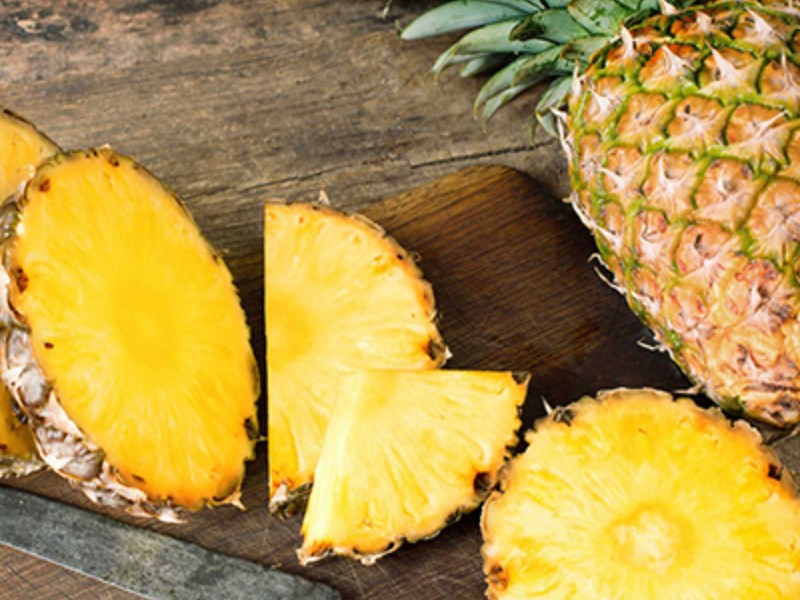Foods that contain natural digestive enzymes
Table of Contents
Although you might think otherwise, there are many organs working together to make your digestive system work. These organs take the food and fluids you eat and break them down into simpler forms, such as proteins, carbohydrates, fats, and vitamins. The nutrients are then transported through the small intestine and into the bloodstream, where they provide energy for growth and repair.
Digestive enzymes are needed for this process, as they break down molecules such as fats, proteins, and carbohydrates into even smaller molecules that can be easily absorbed.
The types of digestive enzymes
There are three main types of digestive enzymes:
• Proteases: break down proteins into small peptides and amino acids
• Lipases: break down fat into three fatty acids plus a glycerol molecule
• Amylase: break down carbohydrates such as starch into simple sugars
Enzymes are also produced in the small intestine, including lactase, maltase, and sucrase.
If the body is unable to produce enough digestive enzymes, the food molecules cannot be adequately digested. This can lead to digestive disorders such as lactose intolerance. Therefore, eating foods rich in natural digestive enzymes can help improve digestion by avoiding the need for dietary supplements.
Foods that contain natural digestive enzymes
Pineapple is a delicious tropical fruit rich in digestive enzymes.
Specifically, pineapples contain a group of digestive enzymes.

These enzymes are proteases, which break down proteins into their building blocks, including amino acids. This aids in the digestion and absorption of proteins.
Bromelain can be purchased in powder form to help tenderize tough meats. It is also widely available as a health food supplement to help people who have difficulty digesting protein.
Like pineapple, papaya also contains proteases that help digest proteins. However, they contain a different group of proteases known as papain.
Studies have shown that taking a papaya-based formula can help relieve digestive symptoms of IBS, such as constipation and bloating.
If you want to eat papayas, be sure to eat them ripe and raw, as exposure to heat can destroy digestive enzymes.
Mango is a juicy tropical fruit popular, especially in summer but is a source of food enzymes all year round.
They contain the digestive enzymes amylase, a group of enzymes that break down carbohydrates from starch (a complex carbohydrate) into sugars such as glucose and maltose.
The amylase enzymes in mangoes become more active as the fruit ripens. This is why mangoes get sweeter as they begin to ripen.
Amylase enzymes are also produced by the pancreas and salivary glands. They help break down carbohydrates so that they are easily absorbed by the body.
That is why it is often recommended that you chew your food thoroughly before swallowing, as the amylase enzymes in saliva help break down carbohydrates for easier digestion and absorption.
Common food enzymes and superfoods
Let’s move on to something less exotic: honey.
This delicious liquid is packed with many beneficial compounds, including digestive enzymes.
The following are the enzymes found in honey, especially raw honey
• Diastasis: breaking down starch into maltose
• Amylase: break down starch into sugars such as glucose and maltose
• Invertase: break down sucrose, a type of sugar, into glucose and fructose
• Proteases: break down proteins into amino acids
Be sure to buy raw honey if you want its digestive health benefits. Processed honey is often heated, and high heat can destroy digestive enzymes.
Bananas are another fruit that contains many natural digestive enzymes.

They contain amylase and glucosidases, two enzymes that break down complex carbohydrates such as starch, into smaller, more easily absorbed sugars.
Like mangoes, these enzymes break down starch into sugars when bananas begin to ripen. That’s why ripe yellow bananas are much sweeter than unripe green bananas.
In addition to their enzyme content, bananas are an excellent source of dietary fiber, which can aid digestive health. One medium banana (118 grams) provides 3.1 grams of fiber.
Without the need to resort to food supplements, we have seen how simple it is to take all the digestive enzymes we need, paying just a little attention to our diet.


















